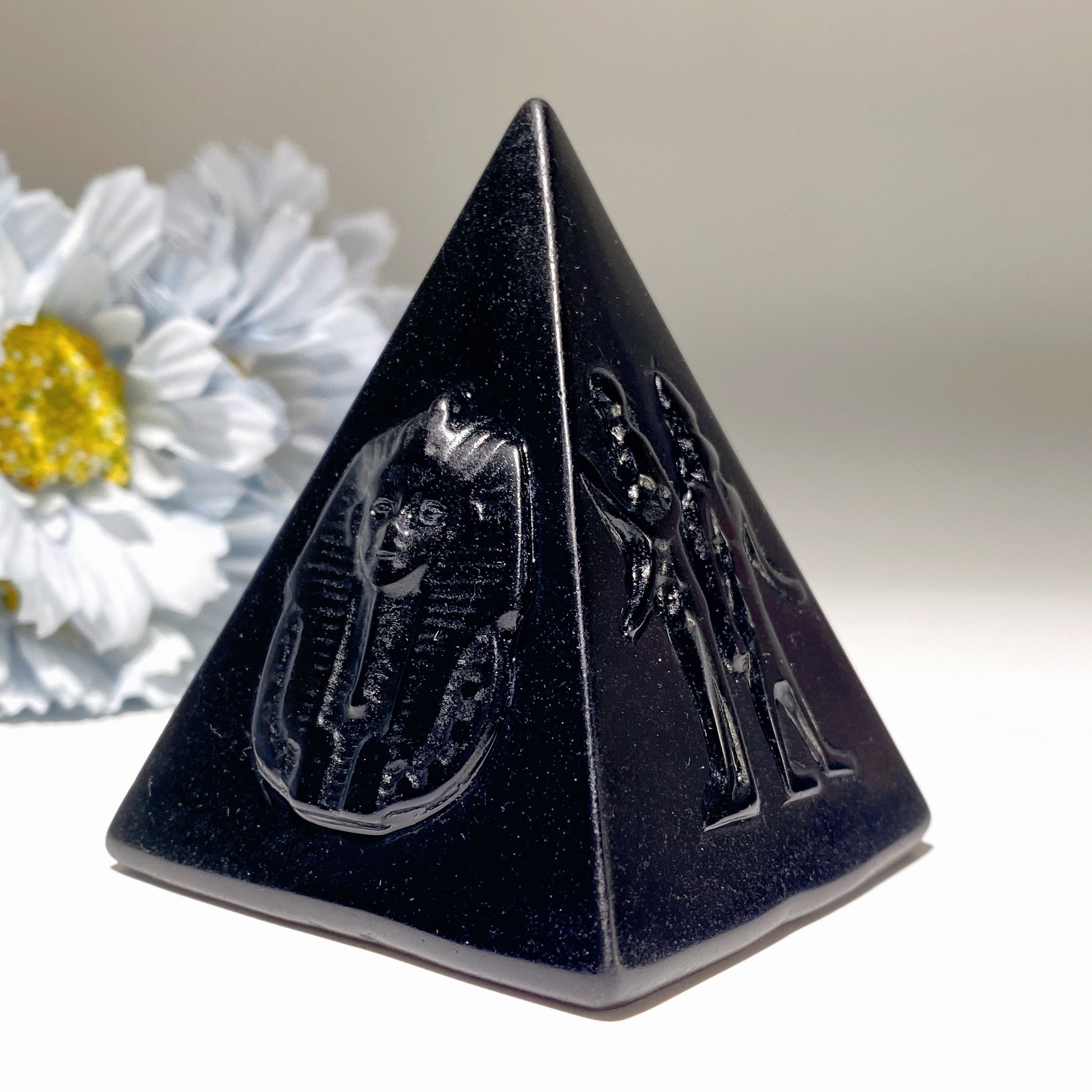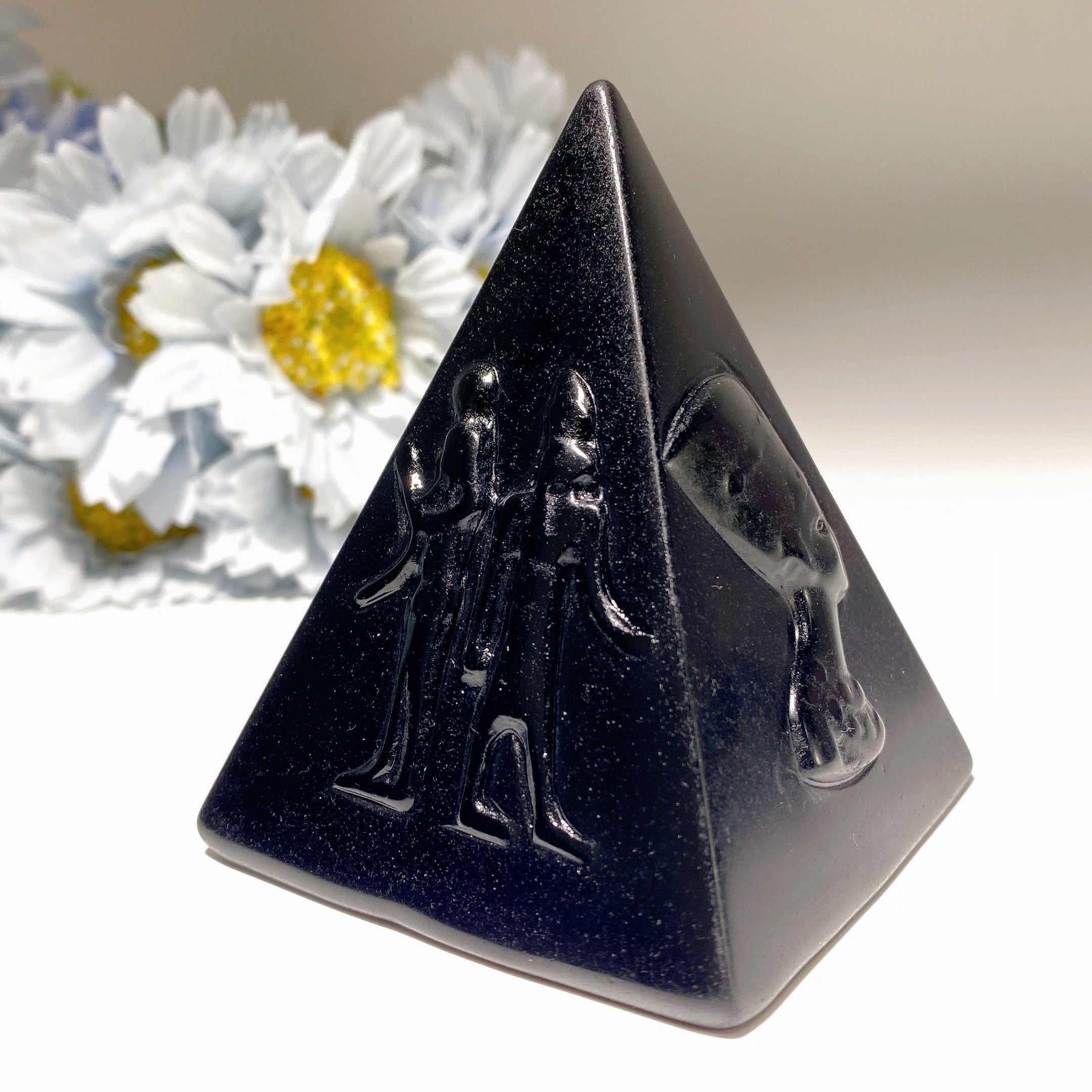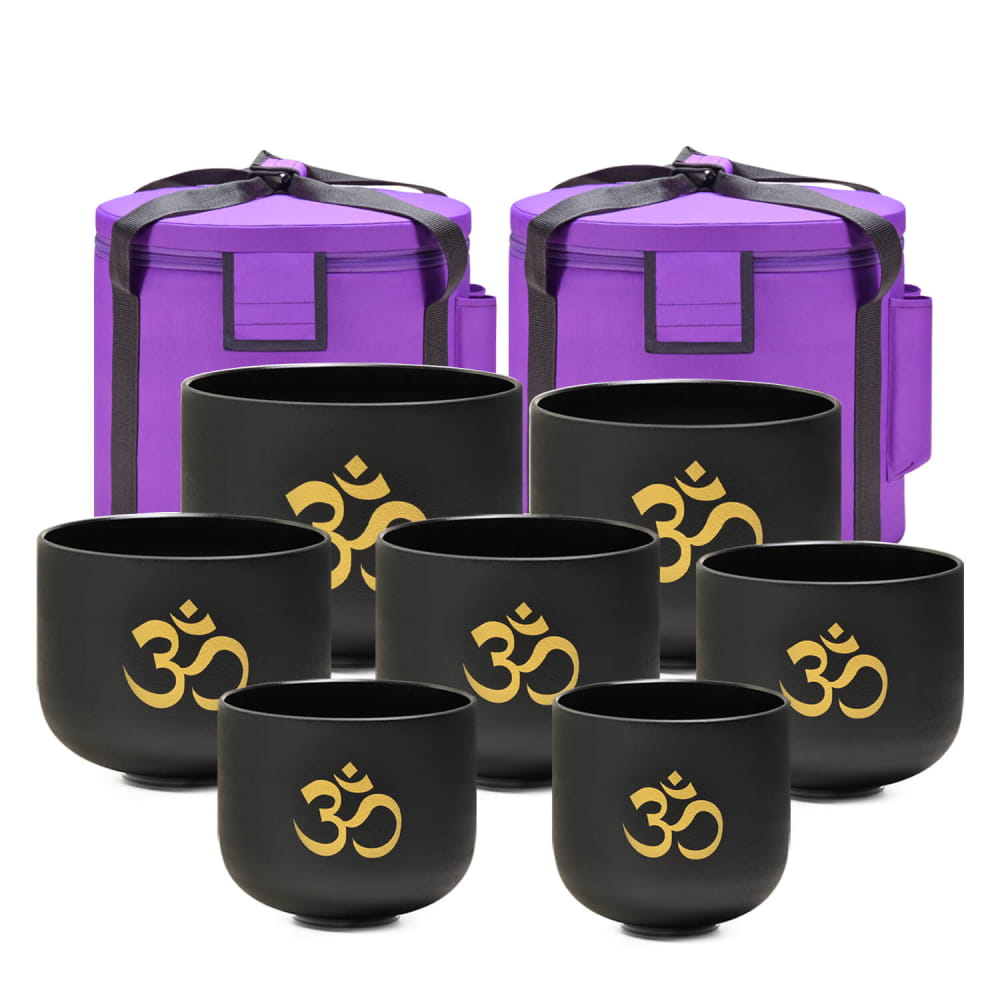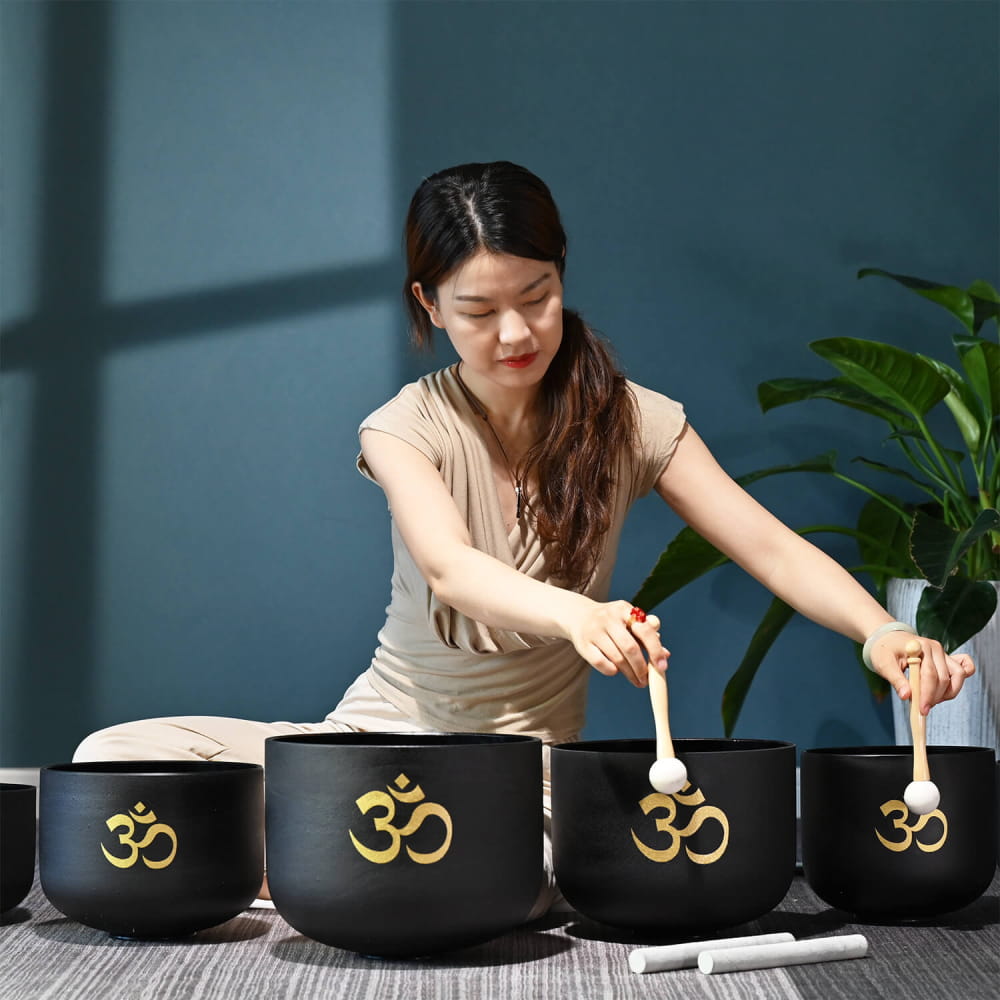The echoes of ancient Egypt resonate through time, carrying with them a profound wisdom that continues to captivate spiritual seekers today. Among the most powerful and enduring phrases from this civilization is a simple yet potent blessing: ankh udja seneb. This ancient formula, often found in the writings and inscriptions of pharaohs, wasn't just a polite greeting; it was a powerful affirmation for a complete and balanced life. If you've ever been drawn to the mystique of Egyptian symbols and their deeper meanings, you're about to uncover a concept that can enrich your own spiritual practice.
This article delves into the heart of the ankh udja seneb meaning, breaking down its components to reveal a holistic philosophy for well-being. We will explore its historical roots, its spiritual significance, and how you can integrate this timeless blessing of life, prosperity, and health into your modern life.
Unpacking the Meaning: What is Ankh Udja Seneb?
The power of "ankh udja seneb" lies in its three distinct yet interconnected parts. Each word represents a fundamental pillar of a fulfilling existence, forming a comprehensive prayer for total well-being. When spoken or written together, they invoke a powerful triad of blessings.
Ankh (ꜥnḫ) – The Key of Life
The Ankh is perhaps the most recognizable symbol of ancient Egypt. Representing a looped cross, it is universally known as the "key of life." But its meaning goes far beyond mere existence. The Ankh symbolizes eternal life, the breath of life, and divine creative power. It represents not just physical life, but the spiritual life force that animates all beings. To wish someone "Ankh" is to wish them a life full of vitality, spirit, and connection to the divine.
Udja (wḏꜣ) – Prosperity and Wholeness
The hieroglyph for Udja, sometimes seen as the wedja symbol, is a bit more abstract. It translates to concepts of prosperity, wholeness, and being intact or sound. This isn't just about material wealth; it signifies a state of completeness where nothing is lacking. It encompasses financial stability, emotional balance, strong relationships, and the successful outcome of one's endeavors. To wish someone "Udja" is to hope for their world to be whole, flourishing, and prosperous in every sense.

Seneb (snb) – Health and Well-being
The final component, Seneb, directly translates to health. The seneb meaning, however, is beautifully holistic. It refers to physical health, mental soundness, and overall well-being. In a world where wellness is often fragmented, the ancient Egyptians understood that true health was a state of harmony between mind, body, and spirit. Wishing "Seneb" upon someone was a prayer for their complete vitality, free from illness, worry, or distress.
Historical Roots: The Blessing of the Pharaohs
The phrase "ankh udja seneb" was a standard formula in ancient Egyptian culture, most famously appended to the names and titles of pharaohs in official inscriptions. Seeing it after a royal name was a way of expressing hope and reverence, wishing the ruler a life of vitality, success, and good health to effectively lead the kingdom. For instance, you might see it written as "The King of Upper and Lower Egypt, Tutankhamun, may he live, be prosperous, be healthy."
However, its use wasn't limited to royalty. It was also a common epistolary formula, used at the end of letters much like we would say "I hope this letter finds you well" or "sincerely." It was a universal expression of goodwill, demonstrating a deep cultural value placed on a holistic vision of a good life. Its prevalence in everything from temple walls to personal correspondence shows how central this concept was to the Egyptian worldview. More than just words, it was a cultural touchstone reflecting a deep understanding of what constitutes a truly blessed existence, as noted in studies of ancient hieroglyphic writing.
The Spiritual Significance of Ankh Udja Seneb Today
While its origins are ancient, the message of ankh udja seneb is timeless. In our modern search for meaning and balance, this phrase serves as a powerful and complete affirmation. It reminds us that a good life isn't just about one area of success, but about the harmonious integration of our spiritual vitality (Ankh), our material and emotional well-being (Udja), and our physical and mental health (Seneb).
You can use ankh udja seneb as a mantra during meditation, focusing on each word and the energy it represents. Repeating it can help center your intentions, shifting your focus toward a holistic vision of your own well-being. It’s a declaration to the universe—and to yourself—that you are open to receiving blessings in every facet of your life.
Bringing the Blessing into Your Life
Integrating the energy of ankh udja seneb into your daily routine can be a beautiful and grounding practice. It’s about creating intentional reminders of this powerful philosophy of life, prosperity, and health.
Creating a Sacred Space
Your environment has a profound impact on your mindset. Designating a small area in your home as a sacred space or altar can serve as a physical anchor for your spiritual intentions. Placing objects that symbolize the principles of ankh udja seneb can help you focus your energy.

An Ankh carving, for example, is a potent symbol for life and vitality. Holding it during meditation or placing it where you can see it daily reinforces the intention for a spirited and meaningful existence.
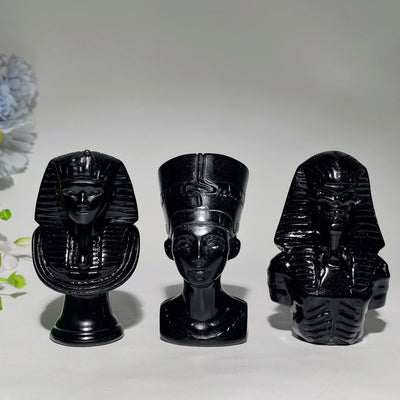
Polished Black Obsidian Egyptian Carvings Figurines 3-4.7 inch
$29.90 $39.90
Invoke ancient Egyptian blessings with a black obsidian ankh figurine, perfect for meditation or home altar displays.
Explore ProductRituals and Affirmations
Start or end your day by speaking the affirmation "Ankh, Udja, Seneb" aloud. As you do, visualize what each concept means to you. Feel the energy of life flowing through you, envision your goals coming to fruition with ease, and acknowledge your body as healthy and strong. This simple ritual can shift your perspective and set a positive tone for your day.

Affirmation Tip:
- For Ankh (Life): "I am filled with divine life force and creative energy."
- For Udja (Prosperity): "I am whole, complete, and attract abundance in all forms."
- For Seneb (Health): "My mind, body, and spirit are in perfect health and harmony."
Tools for Your Spiritual Journey
Complementary spiritual tools can amplify the energy of your intentions. Sacred geometry, like the pyramid, has long been associated with protection and channeling energy, while sound healing can help clear blockages and promote a state of well-being, aligning perfectly with the principles of Seneb.
Enhance Your Practice with These Tools
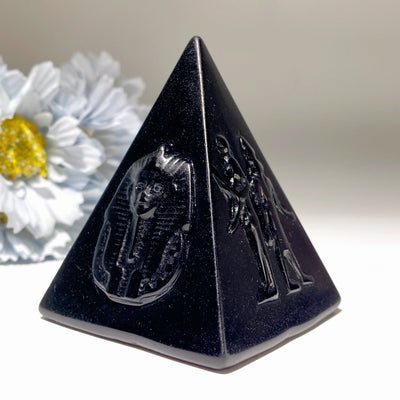
3 Inch Black Obsidian Pyramid with Egyptian Carvings
$29.90
$39.90
Channel the protective energy of ancient Egypt and 'ankh udja seneb' with this carved obsidian pyramid for your sacred space. Learn more ➔
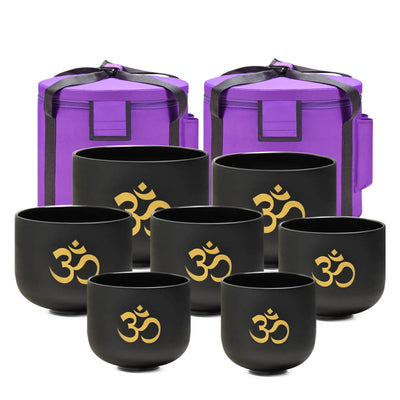
Ensemble de 7 bols chantants en cristal avec symbole OM noir parfait
$799.00
$1,399.00
Bring 'life, prosperity, health' energy to your sound healing rituals with this sacred black OM singing bowl set. Learn more ➔
Conclusion: A Timeless Wish for a Flourishing Life
Ankh Udja Seneb is far more than an ancient curiosity; it is a profound and holistic philosophy for living. Its message—to embrace Life, Prosperity, and Health—is as relevant today as it was thousands of years ago. By understanding its meaning and consciously inviting its energy into our lives, we can connect with a timeless stream of wisdom.
Whether you use it as a silent prayer, a spoken mantra, or through symbolic objects in your sacred space, may this ancient blessing guide you toward a life of complete harmony, vitality, and well-being. Embrace the power of Ankh Udja Seneb and flourish.
Frequently Asked Questions about Ankh Udja Seneb
Ankh Udja Seneb is an ancient Egyptian phrase that translates to "Life, Prosperity, Health." It was a common blessing or affirmation used to wish someone a complete and holistic state of well-being, covering spiritual vitality (Ankh), wholeness and success (Udja), and physical and mental health (Seneb).
In ancient Egyptian, Seneb (snb) means "health." However, its meaning is holistic, encompassing not just physical health but also mental soundness, wellness, and overall well-being. It represents a state of being free from illness and distress.
The ankh is one of the most famous ancient Egyptian hieroglyphs. It is known as the "key of life" and symbolizes eternal life, the breath of life, and divine power. It represents both physical existence on Earth and the immortal, spiritual life beyond it.
While the ankh is sometimes depicted with various deities, it is more commonly associated with gods like Isis and Osiris, who hold it to symbolize their power over life and death. Anubis, as the guide to the underworld, is often shown with a Was-scepter (symbolizing power) or overseeing the Weighing of the Heart ceremony. An ankh in his presence would reinforce his role in the transition from life to the afterlife.
Its significance was immense. It was a standard honorific formula for pharaohs, wishing them a successful and vital reign. It was also a common blessing used in personal letters and greetings among the populace. This shows it was a fundamental cultural concept, reflecting the Egyptian ideal of a perfect, balanced, and blessed life.




